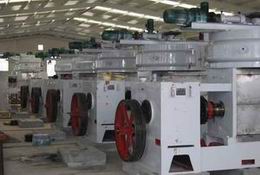
- Pretreatment Section of the Oil Mill Plant
- Pressing Section for Oil Mill Plant
- Solvent Extraction Plant
- Oil Refining Plant
- Filling Section of the Oil Mill Plant
- Oil Modification Plant
- Seed Processing Plant
- Small Oil Production Line
- oil press
- YZS-30 Sesame Oil Pressing Machine
- YZS-68 Soya Oil Press
- YZS-80 Canola Oil Press
- YZS-95 Sunflower Seed Oil Press
- YZS-100 Oil Expeller Press
- YZS-120 Oil Pressing Machinery
- YZS-130 Screw Oil Press
- YZS-160 Oil Seed Press
- YZS-80A Combined Oil Press
- YZS-95A Automatic Oil Press Machine
- YZS-100A Automatic Oil Expeller
- Steel Silo
- Face Mask
- Oil Production Process 5S Groundnut
- Physical Refining Process Of The Edible Oil Refining Machine
- Cottonseed Oil Processing Equipment
- Something About Sunflower Oil Extraction Machine
- Something About Soybean Oil Refining Machine
- Something About Edible Oil Solvent Extraction
- Rice Bran Oil Extraction Equipment
- Soybean Oil Refining Equipment
canola oil production
Canola Oil Production
Canola oil production involves two overall processes, mechanical pressing and extraction, and further processing to remove impurities. The techniques used are similar for most vegetable oils produced from the seeds of plants. The crushing and extraction processes utilized by the canola industry today produce very little change to the fatty acid profile of the oil and the nutritional qualities of the meal.

Canola Oil Production - Seed Cleaning
Seed generally contains less than 2.5% dockage following the cleaning process. Seed that has been cleaned is ready for subsequent export or for crushing into canola oil and meal.
Canola Oil Production - Seed Preconditioning
Seed which will be processed for oil and meal is preconditioned using mild heat treatment, and moisture is then adjusted to improve subsequent oil extraction.
Canola Oil Production - Oil Extraction
Press cake which results from seed processing is next subjected to one of two types of oil extraction to remove much of the remaining oil. Oil may be extracted using either hexane ("solvent") extraction or by "cold-pressing" (also referred to as "expeller pressing"). The end-market into which the oil is sold generally dictates which form of extraction will be used. Hexane is the extraction medium used for the bulk of canola oil which is sold into the commodity grocery chain market as well as to the food industry.
Canola Oil Production - Oil Refinery
The extracted oil that processed in solvent extraction process is referred to as "crude oil" because it contains various compounds which must be removed to ensurea product with good stability and shelf-life, this process is called oil refining, when refers to canola oil, this process should be called canola oil refining.
Some Knowlege about Canola and Canola Oil
Canola is not the name of a natural plant but a made-up word, from the words "CANadian Oil Low Acid". Canola is a genetically engineered plant developed in Canada from the Rapeseed Plant, which is part of the mustard family of plants. According to AgriAlternatives, The Online Innovation, and Technology Magazine for Farmers, "By nature, these rapeseed oils, which have long been used to produce oils for industrial purposes, are... toxic to humans and other animals".
Canola oil today is the most popular all-purpose vegetable oil across the world. Canola is distinguished from traditional rapeseed by the greatly reduced levels of the fatty acid, erucic acid and anti-nutritional compounds called glucosinolates.
Anytime you want to know more canola oil production, contact us!


